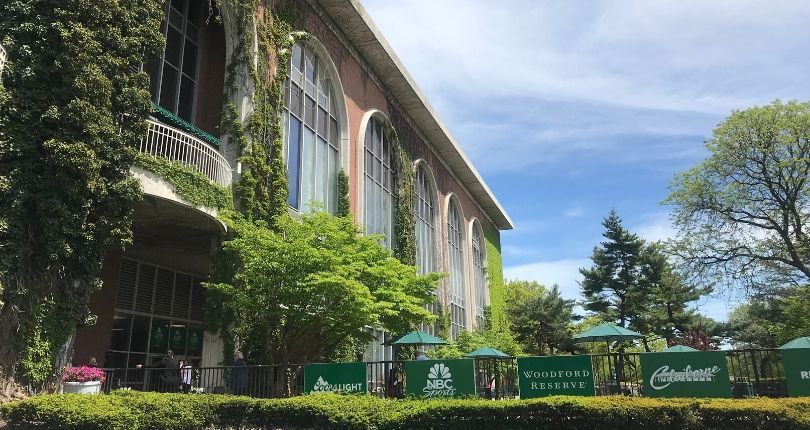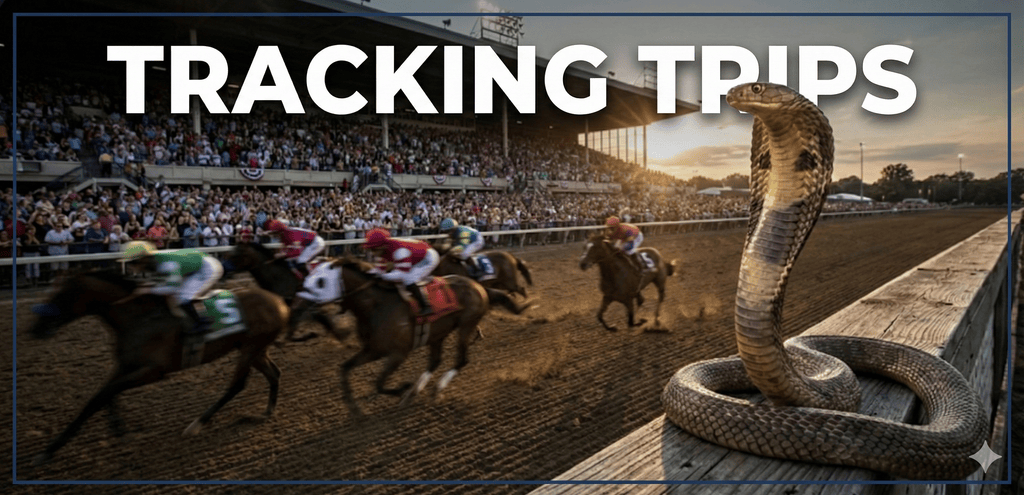
by Brian Bohl
A hallmark of long-running New York Racing Association, Inc. (NYRA) stakes is a rich history that extends back more than a century in some cases. Over the course of time, the particulars tend to change, usually involving the distances, purses and in some cases, the direction of the race itself, with many 19th and early 20th century races in the Big Apple conducted via English-style clockwise at Jerome Park, Sheepshead Bay Race Track and the original iteration of Belmont Park.
While tweaks to major races are common, the now Grade 3, $100,000 Futurity for juveniles underwent a major reinvention in 2018 when the prestigious stakes that saw its initial running in 1888 was switched from the main track to six furlongs on turf. The Futurity had been contested at a variety of distances on dirt through the years ranging from six furlongs up to one mile.
The third running of its new turf format, and the 130th overall, will be held along with the $100,000 Matron for juvenile fillies on the turf on Sunday, October 11 over Belmont’s Widener course.
The Futurity boasts an impressive legacy, having seen 16 future Hall of Famers use a winning effort to springboard history-making careers. Despite some of the sport’s most famous names bolstering its entry in the racing manuals, the race began to lose some of its shine in recent years, with its location deep in the calendar and also competition at its own track from races like the Grade 1 Champagne, which will celebrate its 149th running on Saturday.
Rather than compete for juvenile dirt horses within its own fall meet, NYRA instituted a new wrinkle for the Futurity in 2018, moving it to turf for the first time. Making the decision an easy one for the racing office was the fact the Breeders’ Cup offered its support by making the six-furlong sprint an automatic “Win and You’re In” event for the Breeders’ Cup Juvenile Turf Sprint.
“Moving it to the grass allowed us to restore the race’s luster while still keeping its great history,” said Andrew Byrnes, NYRA’s stakes coordinator. “It’s important to maintain these long-standing races, and the fact the Breeders’ Cup made it a “Win and You’re In” really solidified the decision to move it to the turf.”
That history was well-worth preserving. Among the notables who burst onto the racing scene with victories in the race were three eventual Triple Crown winners in Citation (1947), Affirmed (1978) and Secretariat (1972), whose Hall of Fame sire, Bold Ruler, also won the race in 1956.
Man o’ War, a perennial candidate on most “Best Racehorses of All Time” lists, won the race in 1919 before becoming arguably the most famous athlete, equine or human, on the planet.
It will take time to assess if the Futurity can churn out future turf champions, but the new format has already propelled one graduate to Breeders’ Cup glory. Last year’s winner, Fourwheel Drive, improved to 2-for-2 to start his career with a three-length victory as the favorite for trainer Wesley Ward. Next out, the son of 2015 Triple Crown-winner American Pharoah earned Breeders’ Cup glory by capturing the Juvenile Turf Sprint at Santa Anita to cap his juvenile campaign.
“The problem with American racing is we don’t have that many graded races for 2-year-olds on the grass like they do in Europe,” Ward said. “When it comes to Breeders’ Cup qualifying, you need those qualifying graded earnings, so now that they installed this, it certainly helps us a lot. There’s a lot of trainers, especially when it comes to their 2-year-olds, who find they can stay more sound running on the grass than the dirt.”
Ward, a three-time Breeders’ Cup winner, said the race’s re-tooling is helpful for trainers who want to keep their juvenile horses in training late into the campaign. Ward will send out a trio of entrants on Sunday with Trade Deal, After Five and Gypsy King.
“It’s a historic race, obviously, and there’s been many great horses who have won this race in the past,” Ward said. “I think they are just going to build from here with it and with all the great 2-year-olds opening up now on the grass, it’s going to open up a lot of doors.”
Former trainer Kiaran McLaughlin won two runnings of the Futurity on dirt with Charitable Man in 2008 and Annual Report in 2015. McLaughlin said the race was just as important as the Grade 1 Runhappy Hopeful contested in September for juveniles every year towards the end of the Saratoga Race Course summer meet.
“It’s always important to win graded stakes with 2-year-old colts and even though they call it the Hopeful for that reason, the Futurity gave us hope to have good colts going forward,” said McLaughlin, who won 1,577 races as a trainer from 1995-2020 before retiring to become an agent for jockey Luis Saez, who will pilot Sky’s Not Falling in Sunday’s edition of the Futurity.
At the time, the Futurity gave trainers the opportunity to gauge if they wanted to stretch their horses out in races like the 1 1/8-mile Remsen later in the calendar at Aqueduct Racetrack.
“It was important because you’d try to springboard to the Remsen and the longer type races from that,” McLaughlin said. “Sometimes they didn’t stretch out but sometimes they did, so it was always an important race.”
The Futurity started at Sheepshead Bay Race Track, which stood in Brooklyn and hosted the race until the passage of the Hart-Agnew Bill, which banned racetrack betting in New York and prevented the race from being run in 1911-12. Since then, only twice has the race not gone off: in 2001, when the race was scheduled for September 16 but called off due to the September 11 terrorist attacks five days prior, and in 2010.
The race was contested at Saratoga before being moved to Belmont Park in 1960, which witnessed three winners of the Futurity go on to win an Eclipse Award for Horse of the Year, with 1993 winner Holy Bull (1994), Affirmed (1978 and 1979) and Secretariat (1972 and 1973). During Belmont’s renovation, Aqueduct hosted the race from 1962-67, ensuring that all three current NYRA tracks have served as the home of the Futurity.
The Futurity is slated as Race 7 on Sunday’s 10-race card which will feature a 12:50 p.m. Eastern first post. America’s Day at the Races will present daily television coverage of the 27-day fall meet on FOX Sports and MSG Networks. For the complete America’s Day at the Races broadcast schedule, and additional programming information, visit https://www.nyra.com/belmont/racing/tv-schedule.
NYRA Bets is the official wagering platform of Belmont Park, and the best way to bet every race of the fall meet. Available to horseplayers nationwide, NYRA Bets is currently offering a $200 new member bonus in addition to a host of special weekly offers. The NYRA Bets app is available for download today on iOS and Android at www.NYRABets.com.



